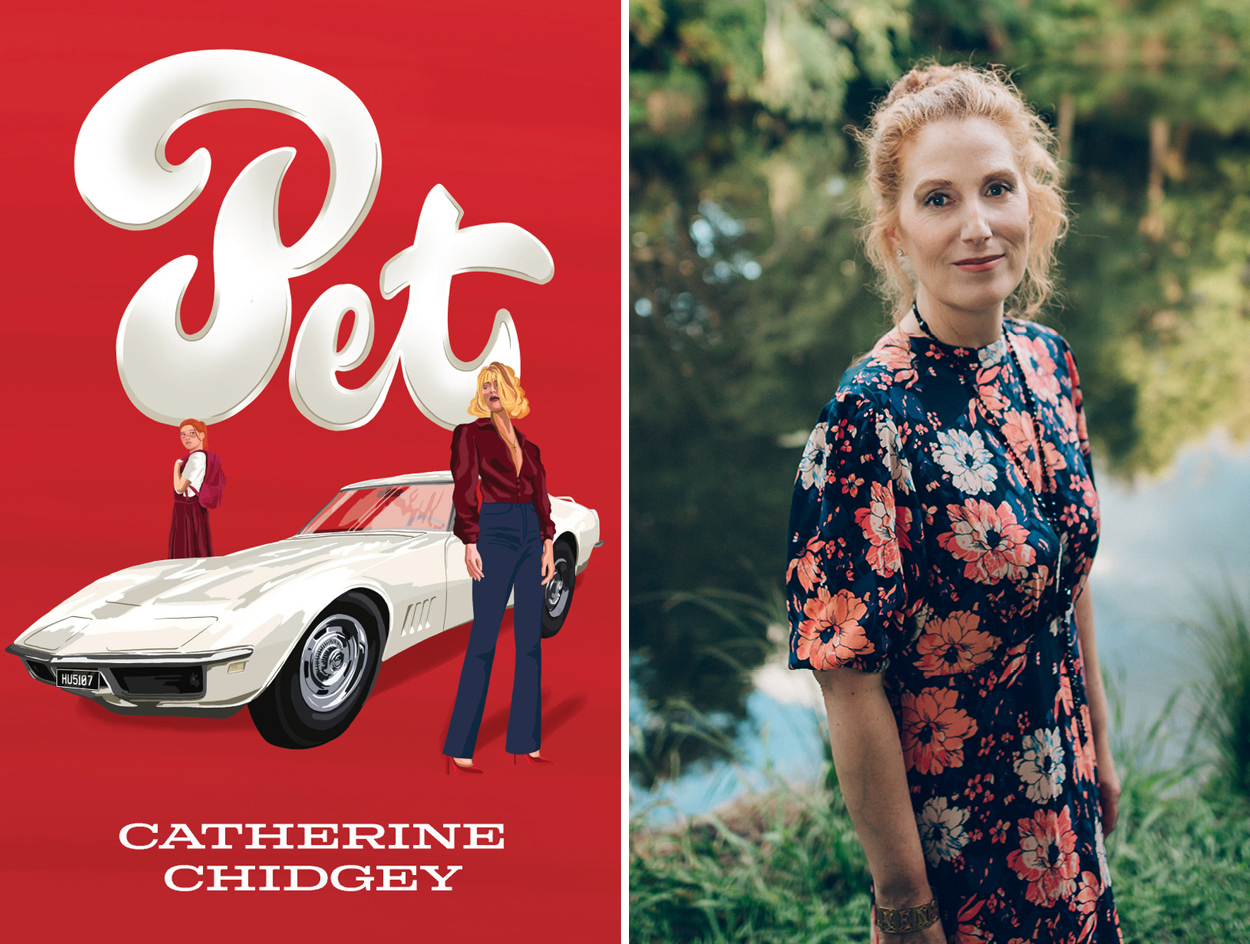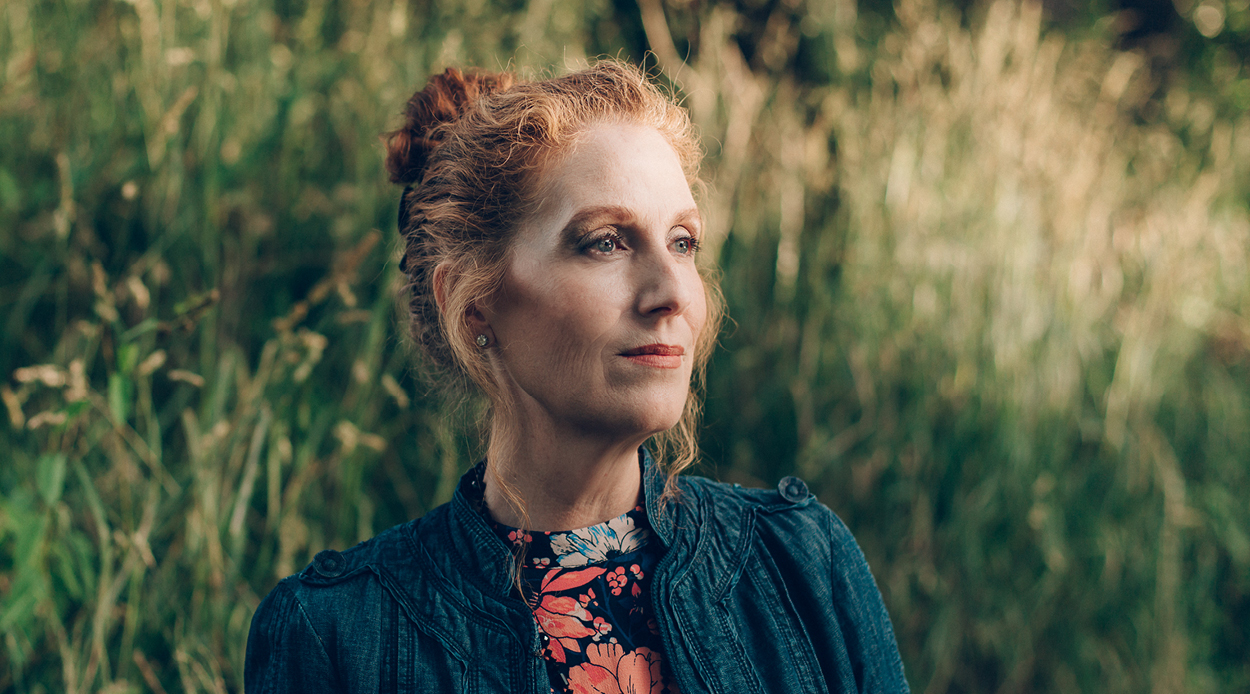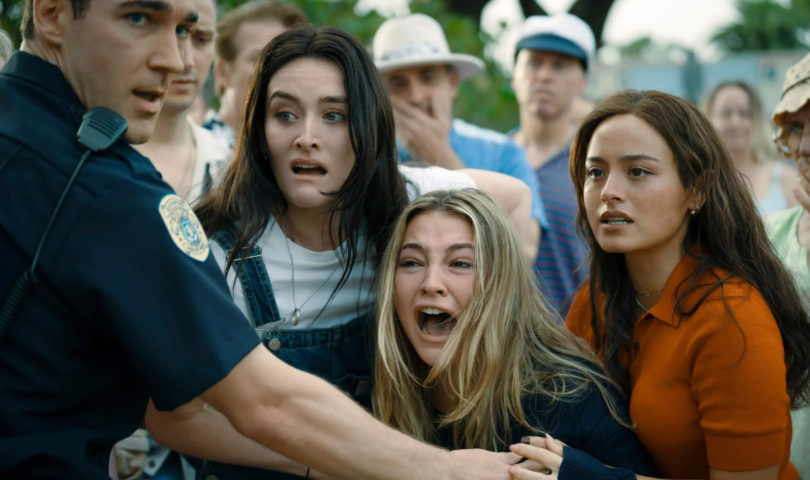New Zealand certainly has no shortage of literary excellence. Our writers have long been prolific and forward-thinking, garnering a level of international recognition that asserts our nation as more than just a breeding ground for sporting prodigies. Catherine Chidgey is one such talent, a two-time Acorn Prize for Fiction winner (the country’s richest literary prize), thanks to the roaring recent success of her magpie-narrated novel, The Axeman’s Carnival.
In the wake of this acclaim, she has just this month released Pet — a nail-biting read that sees the Ngāruawāhia-based author foray into psychological thriller territory for the first time. Never one to shy away from a challenge, or take a daunting risk in her work, she explains, Chidgey’s impressive catalogue only continues to expand (with the next book already well on its way). Perhaps a sign that for this author, the best is yet to come.
Did you expect this kind of response and success when you wrote The Axeman’s Carnival?
No, I didn’t. I didn’t know how it would go down with readers because it was a real change of direction for me. I’d written two novels set in Nazi Germany, and then hey, here’s another book and it’s told by a talking bird. So it was a real shift, and it felt like a risk to have a magpie as the voice of the book. It was a real creative risk. But then I love taking risks with my writing, I would get very bored if I wasn’t pushing myself and challenging myself to do something new with every book.
It would be daunting — putting yourself and your whole craft out there, right? You create something you love, and then you put it out to the world, which can be a critical place.
Once you’ve seen your baby off to the first day of school, anybody can pick on them on the playground. You just have to develop a bit of a thick skin to be able to take that and not let it get to you, and not let it stop you from writing.
What is the feeling like, knowing that a large group out there is reading your book and supporting your work?
It is a strange feeling. Usually, for years, you’re working away on a book, shut in a room by yourself. It’s very solitary and very private. Then the book is released, and all of a sudden you do an about-face. You have to be very public about it. I like both sides of that aspect of the job. By nature, I’m an introvert. There is something magical about just sitting there and creating this entire world. and these three-dimensional characters that are all grown inside your head. There’s something magical about that process. But then there’s something equally magical about sharing it with readers, and hearing their take on this thing that you’ve created, and hearing how they engage with it. I love that side of it, too.
A couple of weeks ago, I was flying home from Featherston Booktown. I was sitting on the plane and looking across the aisle, and the woman just right across the aisle from me was reading my novel Remote Sympathy. And that’s the best. I thought for the whole flight, “Do I say something? What if she’s really not enjoying it very much?” As we touched down I said to her, “I like your taste in novels.” And fortunately, she did say how much she was enjoying it, so I outed myself. That was a really lovely moment to see it out there in the wild.

On that note, can you tell me more about your latest novel, Pet — what’s been your inspiration?
Pet is set in mainly in 1984, in a New Zealand Catholic Primary School. And I used my own experience as a jumping-off point. In particular, I use the memory of this very glamorous, charismatic teacher, who came to that school when I was 11. She was just this glowing figure, very magnetic, she looked like Olivia Newton John, and we all wanted to be her. She was someone who seemed quite different from our mothers, and she felt like an example of who we could be. We were 11, on the cusp of leaving childhood behind and learning what it meant to be a woman. And here was this figure who seemed like everything we wanted to be.
She played favourites, too (a lasting theme of the novel). She had ‘pets’, and the process of selecting a pet often seemed quite random; she would chop and change, and you never knew why. She would invite select girls round to her house, and they would listen to records and make fudge, and she drove a sports car. She just seemed otherworldly and magical. We all wanted to be the ones who had the light of her favour fall on us. The memory of her has stayed with me over the decades, and I think it was inevitable that she would find her way into my writing in some way.
And obviously, this character has just served as the inspiration for a dark, fictional tale?
Absolutely. For whatever reason, when I was finishing up with The Axeman’s Carnival, the memory of that time presented itself to me again, and so I took that as a jumping-off point to write quite a dark little tale. And that side of the story is fictional. I moved away from the real-life memory of that figure to tell something quite dark and twisted. To write a psychological thriller, really, is another change of direction for me. And I loved it. I loved creating suspense and creating a feeling of unease that creeps up on both the narrator. The story is told by a 12-year-old girl, Justine, who comes into the orbit of this charismatic figure, Ms Price, her teacher. I loved that the sense of unease crept up on Justine, but also at the same time creeps up on the reader, so that both Justine and the reader are never quite sure who they should believe or what is actually happening. So a lot of the story is concerned with memory and an unreliable memory.
Many people might not have had a chance to read Pet yet, so I won’t pry too much, but I was wondering, did you always plan that twist to come?
It did feel like a high-wire act that I needed to both reveal certain pieces of information to the reader and also withhold certain things or introduce doubt in the reader’s mind. I suppose I wanted that. That nagging sense of doubt remains even after they’ve closed the book. And it does for me, too — it is a book about betrayal and guilt.
Winning the Prize for Fiction for the second time, how does this feeling differ from the first?
I don’t know if it does differ. The nerves are still through the roof because you have no inkling before that’s announced publicly whether you’ve won or not. I do find that very stressful. And I know the other writers did, too. I’ve been shortlisted three times now — and I’ve won twice and not won once, so I’ve experienced both sides of it. It’s enormously nerve-wracking and stressful to be sitting there in the audience and waiting until they announce the Fiction Prize, which is at the very end of the night, waiting to see if they call your name or not. I don’t think that I will ever feel less nervous about that if I’m lucky enough to be shortlisted again.
Do you ever get writing fatigue? Or writer’s block?
I do. I had a period of 13 years where I didn’t publish between my third and fourth novels. And that was because various life things were happening during that time as well, which made it difficult, but I seem to be on quite a roll now. After that period of drought, I started publishing again, and I’ve published several books in fairly quick succession. It is a joy to have been able to do that, but I’m also deeply suspicious that one day, it will all just dry up again and disappear. I think that’s why I’m cracking the whip as hard as I am because I feel I’ve got to make the most of this really fertile period. I’m 53 now, and the clock is ticking, and I’ve only got maybe a couple more decades of productive writing years, and there are loads of stories that I want to tell.
What is your writing philosophy? What do you set out to accomplish?
I write to satisfy myself, first of all, to create something that I feel is as finely crafted as I can make it and that has a certain beauty on a sentence-by-sentence level. Yes, I think a writer needs to pay attention to the plot, but for me, it’s also as important to have beautifully crafted language; that is the thing that’s driving that plot along. I pay great attention to the musicality of my writing. And I always read it aloud over and over to make sure that every syllable is landing the way that I wanted it to.
Beyond that, if it is pleasing to me, then hopefully, it will also be pleasing to my readers and entertain them and provide a haven for them in difficult times, or speak to them in some way about the human condition.
Is there any writing that’s inspiring you at the moment, either in New Zealand or more broadly?
I’m just reading a novel called Great Circle by Maggie Shipstead, which is a doorstopper of a book. But it’s hugely imaginative and risky. So it’s the story of a fictional 1950s Aviatrix pilot who takes it upon herself to circumnavigate the globe from north to south, which has never been done before. And it’s not a spoiler to say that she goes missing. It’s retracing her story with lots of different tangents and side stories it takes you on an adventure in the same way that she was attempting to go on this huge journey. I’m really loving getting my teeth into that. It’s a very ambitious novel, and I think it’s speaking to me because I like to take those creative risks with my own writing.
The whole process of writing a book seems very daunting. How do you begin?
Usually, it begins with a voice. (Not the idea for the book — the idea sort of has its own genesis. The actual writing begins with voice.) Phrases just keep circulating in your mind and won’t leave you alone. And it is a physical feeling. It’s like there’s something lodged in my chest that I have to get out of me and onto the page in order to feel any kind of peace. And you live with that sense of urgency for two or three years. When you’re writing a book, that feeling that there’s something inside you that just needs to find its way out.
How do you come up with fresh ideas and new ways of approaching things?
I guess just trying not to tell a story that’s already been told before, or tell the story in a way that’s already been told before. For instance, The Wish Child [set in Nazi Germany], is told by a very unexpected voice. And when you do find out, towards the end of the book, who that voice is, I’ve heard from lots of readers that it’s a very moving revelation and is a real turning point in that story. There are lots of novels out there about World War Two, and I knew it was well-trodden ground before I started telling that story. But being able to tell it from a different angle was something that was important to me and was what kept it fresh for me.
Was that type of reveal something that you had always envisaged when you started the book?
Yeah. When I finally settled on that narrative (that was one that took 13 years to write), everything fell into place. And I knew that that reveal would be the climax of the story.
And what is next for you? Do you have any other books that are already itching to get out?
I do have a pretty decent draft of the next book, which is something different again. It’s set in a version of the UK in 1979, and it’s called The Book of Guilt. I’ve just got some feedback from Sue Orr and Elizabeth Knox on that and am tidying it up, and then we’ll send it off to my agent and see what happens.
On that note, what do you hope your legacy will be?
I hope my legacy is the books themselves. I hope that they continue to be read. There are a lot of books that are absolutely beloved when they come out that, over the decades, pull away from public attention. I would hope that my books might stand the test of time and would still be read when I’m no longer around.
Pet, by Catherine Chidgey, is available now. Published by Te Herenga Waka University Press.







